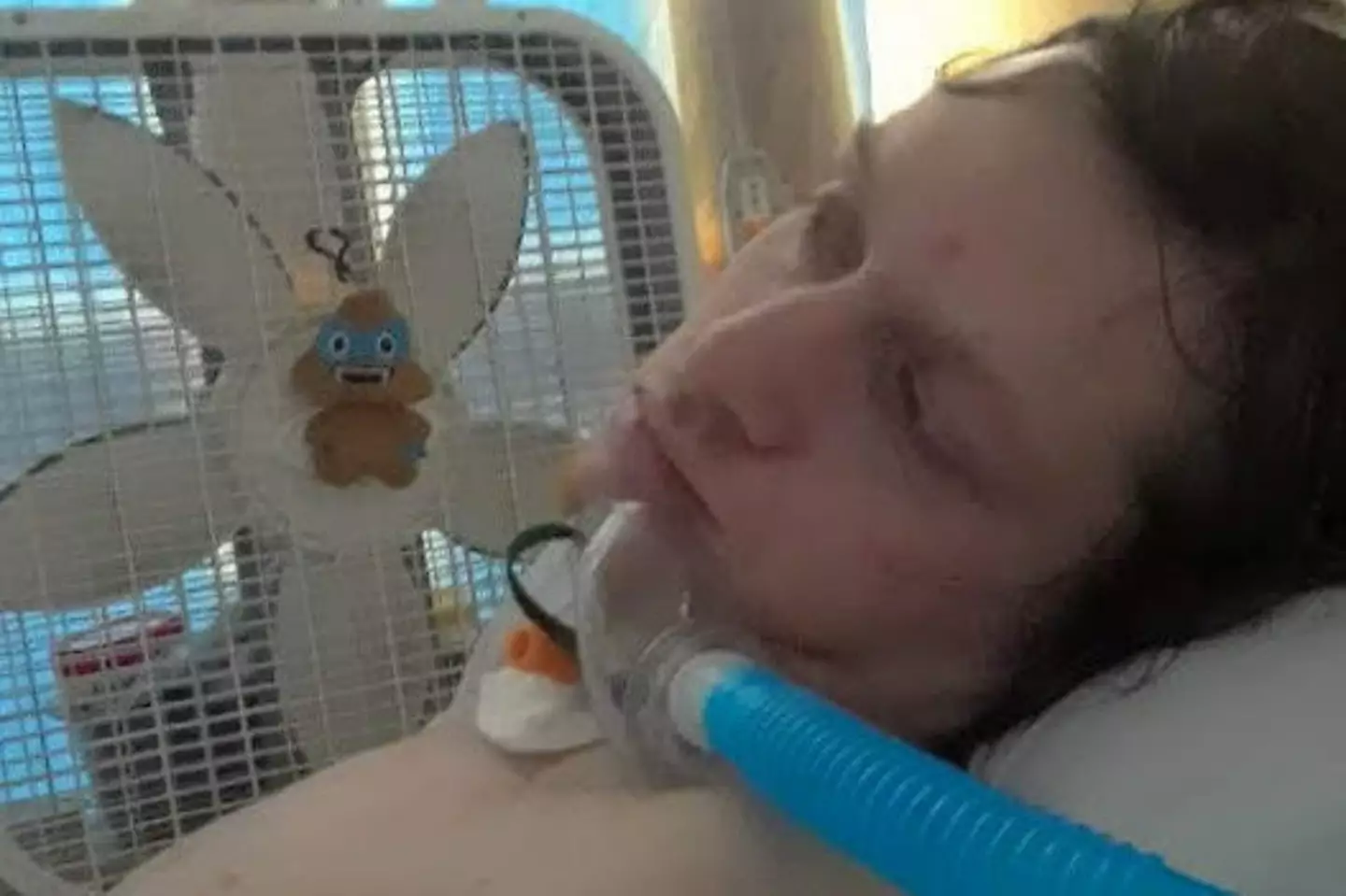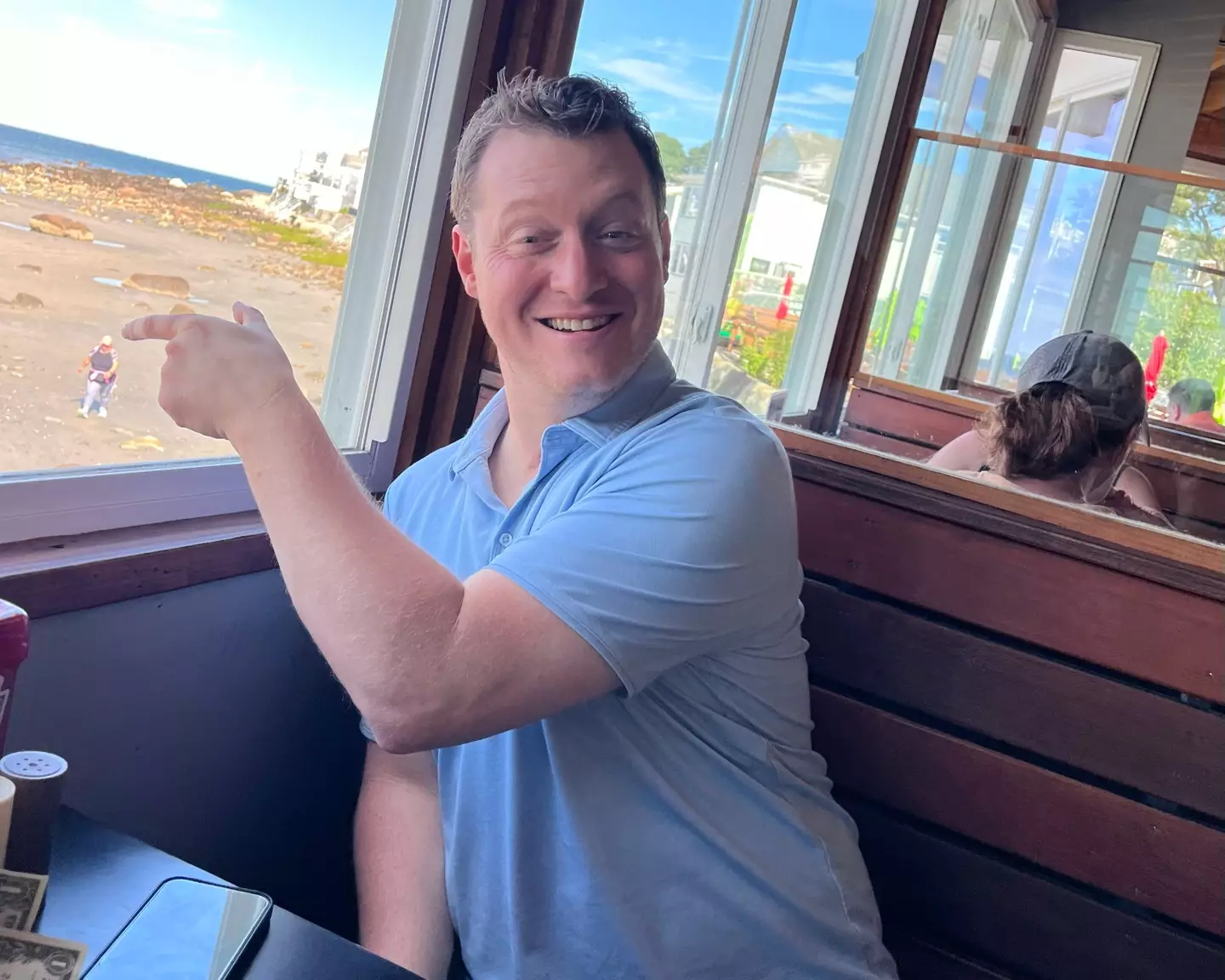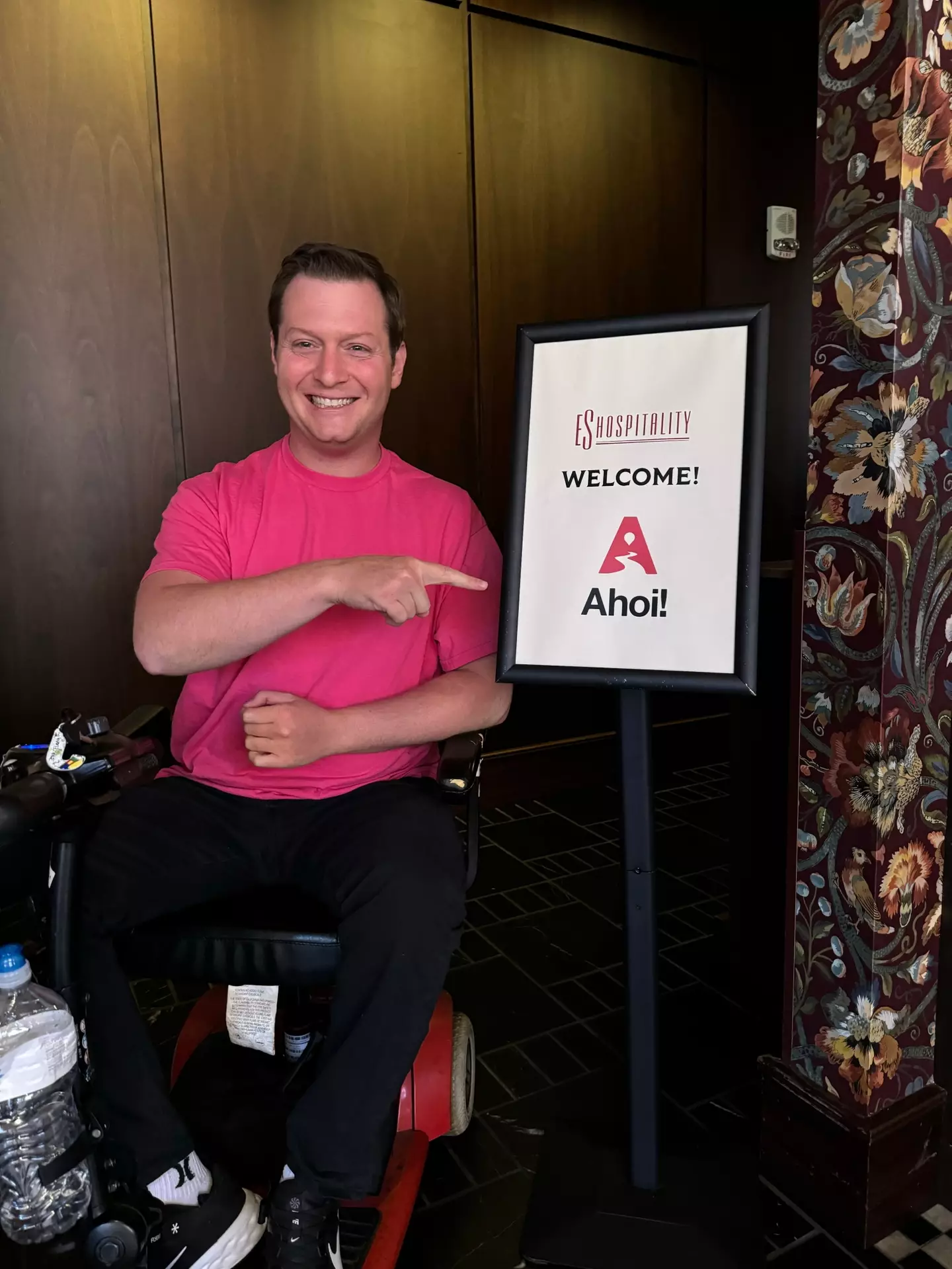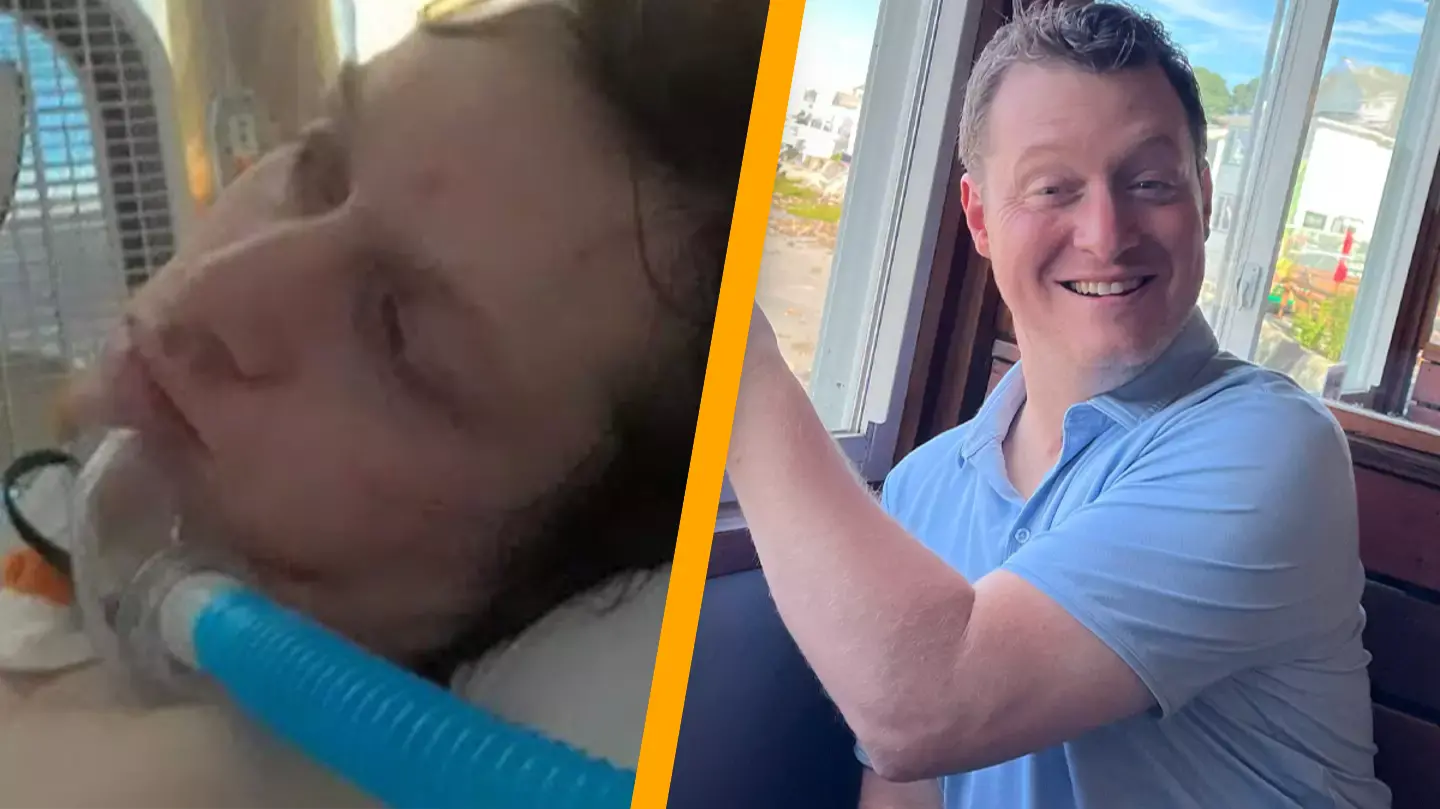Several years ago, Jacob Haendel experienced a drastic change in his life when his health began to rapidly decline.
In 2017, at the age of 27, he was employed as the head chef at a Boston restaurant when his life took a dramatic turn after being diagnosed with acute toxic progressive leukoencephalopathy.

This illness advanced to locked-in syndrome, causing his body to gradually become immobile.
Haendel’s condition was severe, and within months, he lost the ability to move or even blink.
The neurological disorder left him conscious of his environment but unable to move or speak due to complete paralysis. This state can result from brain trauma, infections, or toxin exposure.
Hospital staff deemed him ‘brain dead,’ while he endured discussions about potentially discontinuing life support, all while trapped within his own body.
Amazingly, he regained some movement in his wrist and developed the ability to blink.
Since then, he has made an extraordinary recovery, allowing him, now at 35, to speak and regain mobility.
Haendel believes he is the first person to recover from stage four acute toxic progressive leukoencephalopathy.

Reflecting on his experience, he stated: “I now appreciate the little things in life – even being able to actually hold a cup of water.”
Haendel was trapped in his own body for ten months before making a significant breakthrough and recalls some unsettling conversations he overheard.
“One time I overheard the nurses talking, and one of them said, ‘I have to tell you about this really awkward hookup I had last night’,” he remembered.
“It was the funniest thing I had heard in months, and I was almost laughing inside.
“But then one of them said, ‘don’t worry about talking in front of him, he’s brain dead’.”
Doctors also discussed his prognosis: “They were discussing withdrawing life support. I was in so much pain, I was ready to go anyway,” he mentioned.

At that moment, the medical team observed a slight movement in his wrist.
“They told me to do it again, and that was my one shot, I focused everything I could on moving my wrist,” he recounted.
The exact cause of Jacob’s condition remains unknown, though he speculates that exposure to chemicals during his career as a chef might have contributed.
Remarkably, he has regained his ability to walk through surgeries and physical therapy, and although he has returned home, he continues to receive around-the-clock care.
“I never imagined I’d recover like this,” he concluded.

